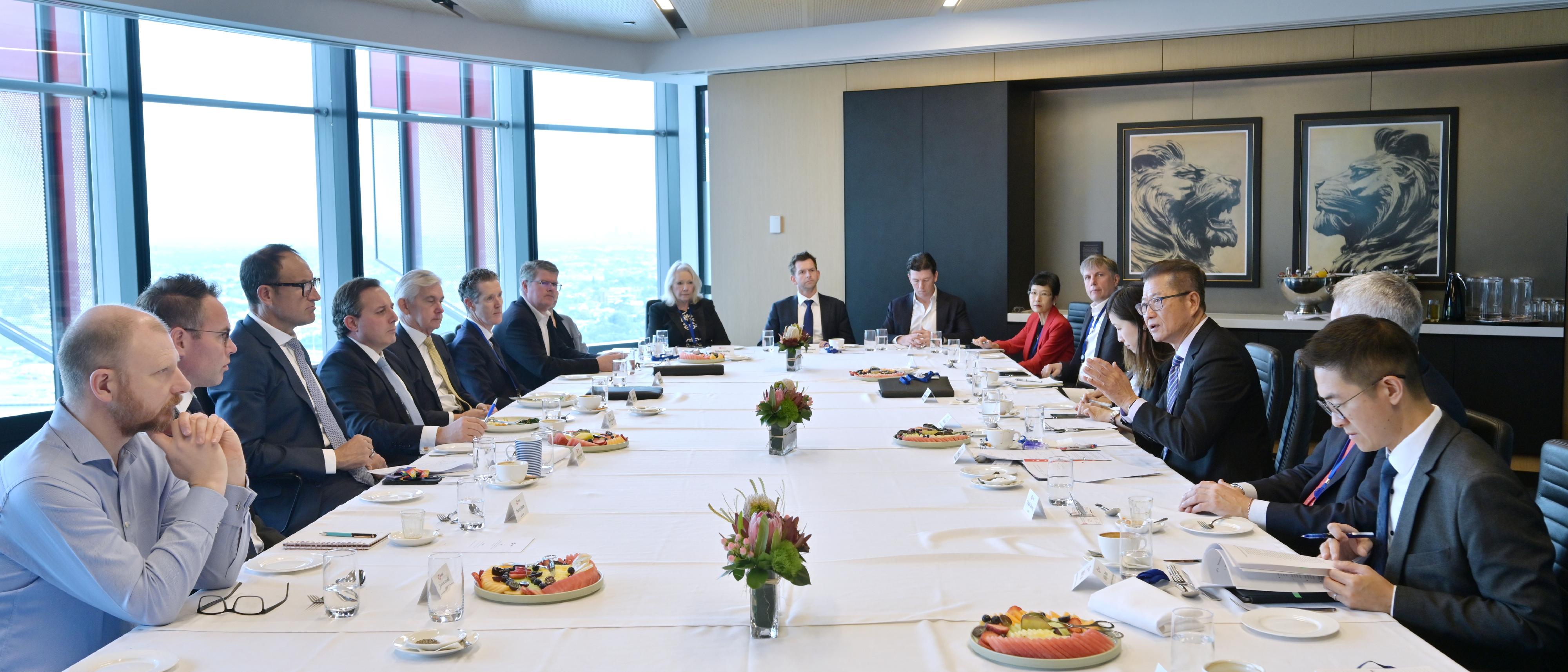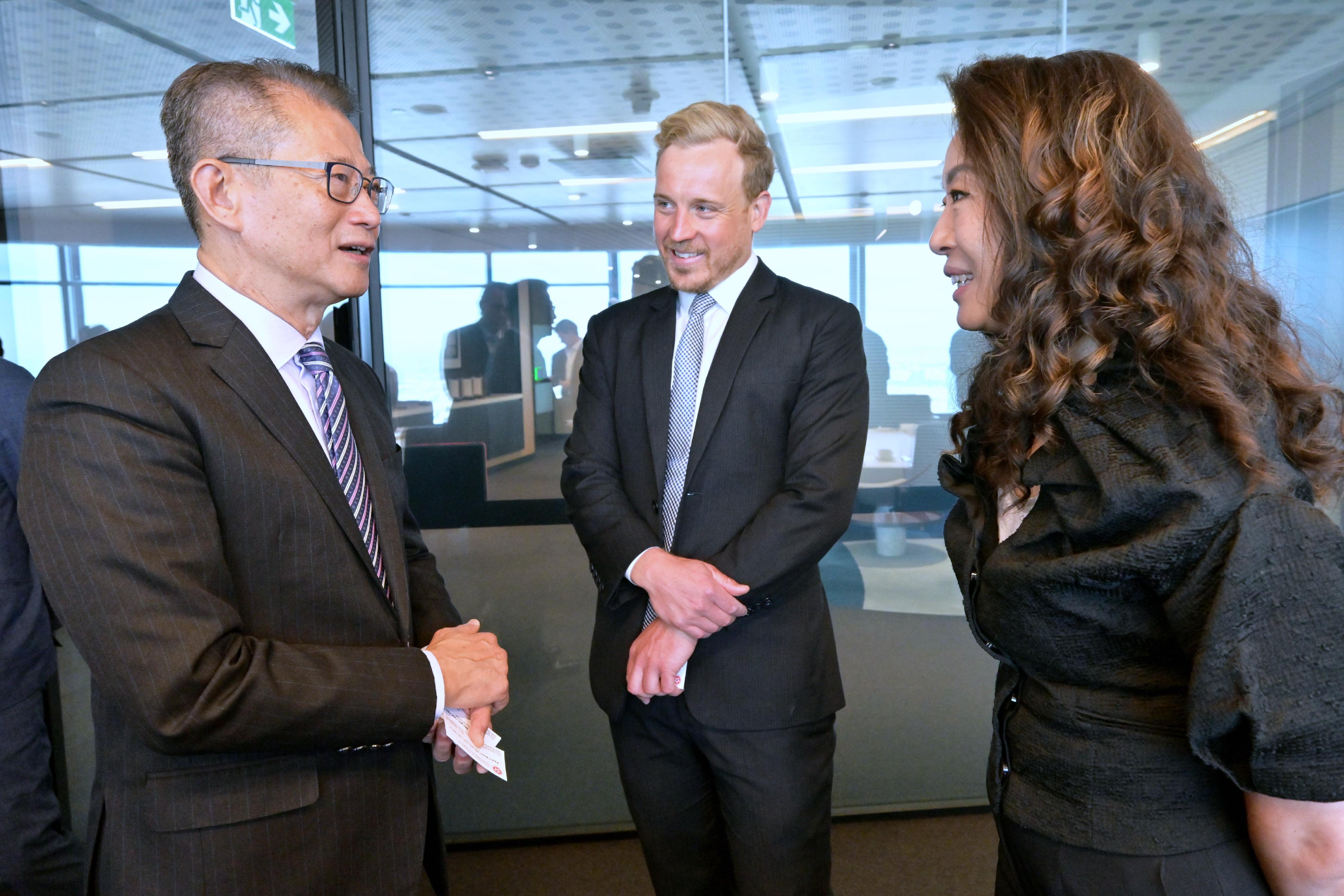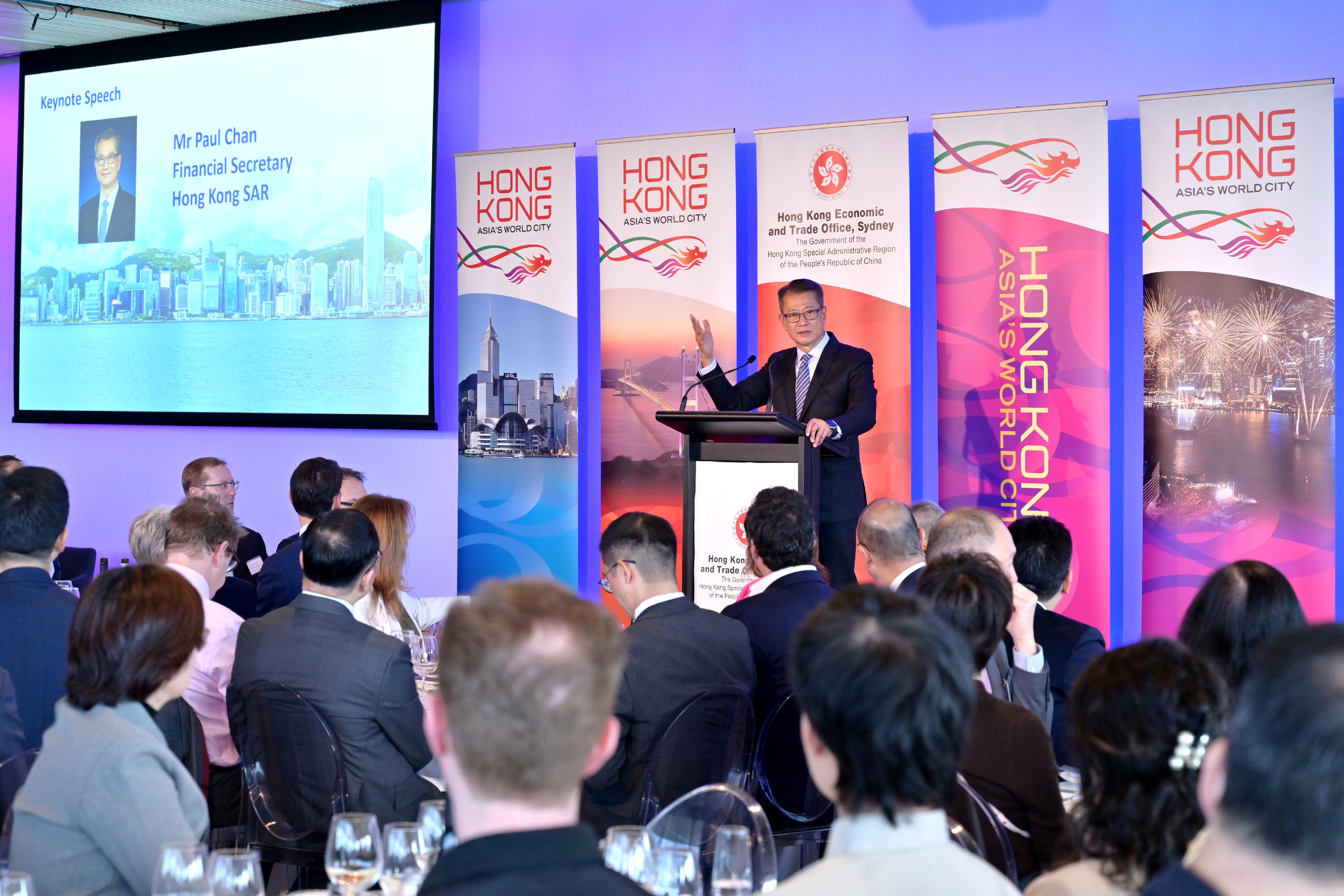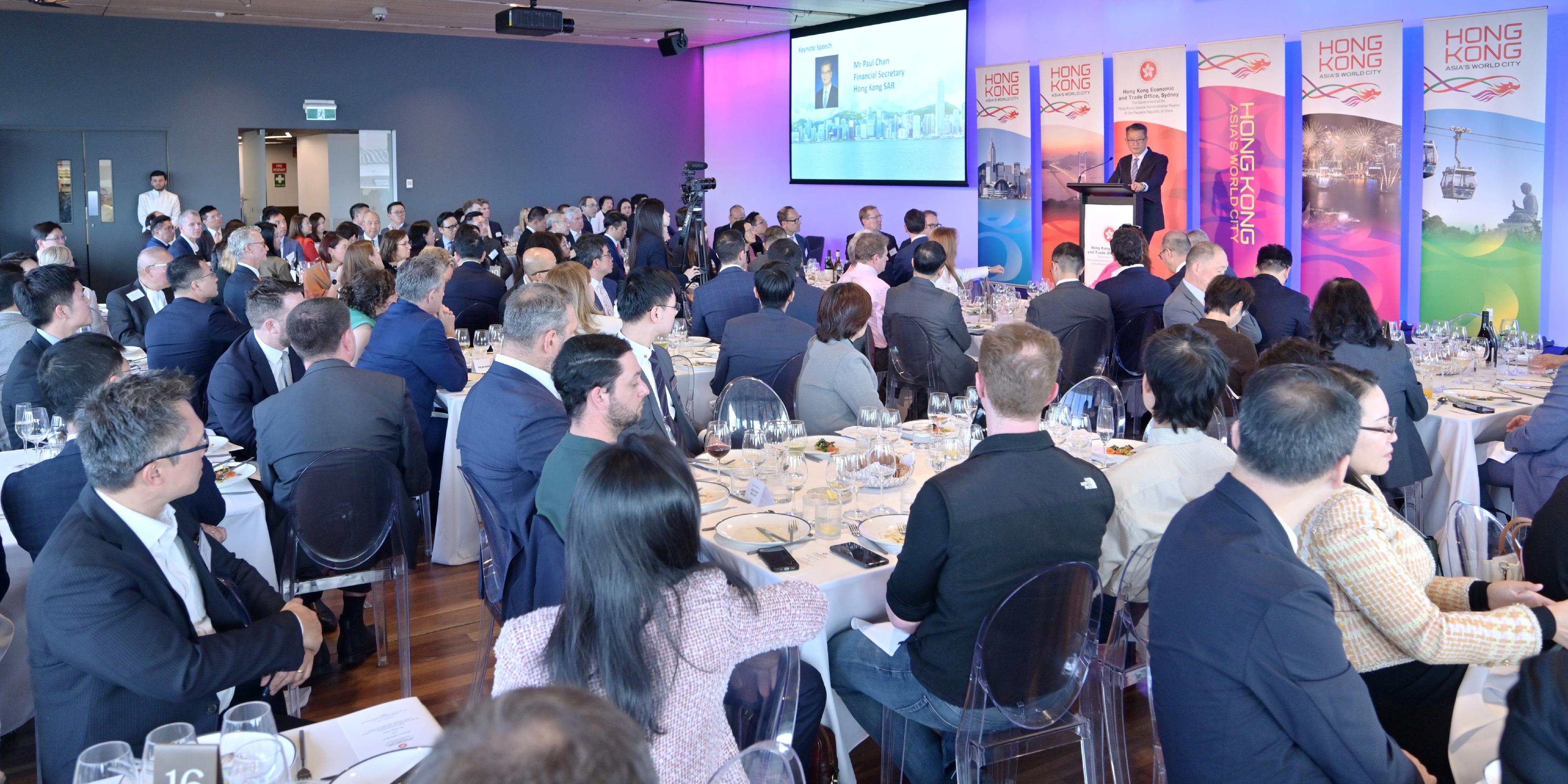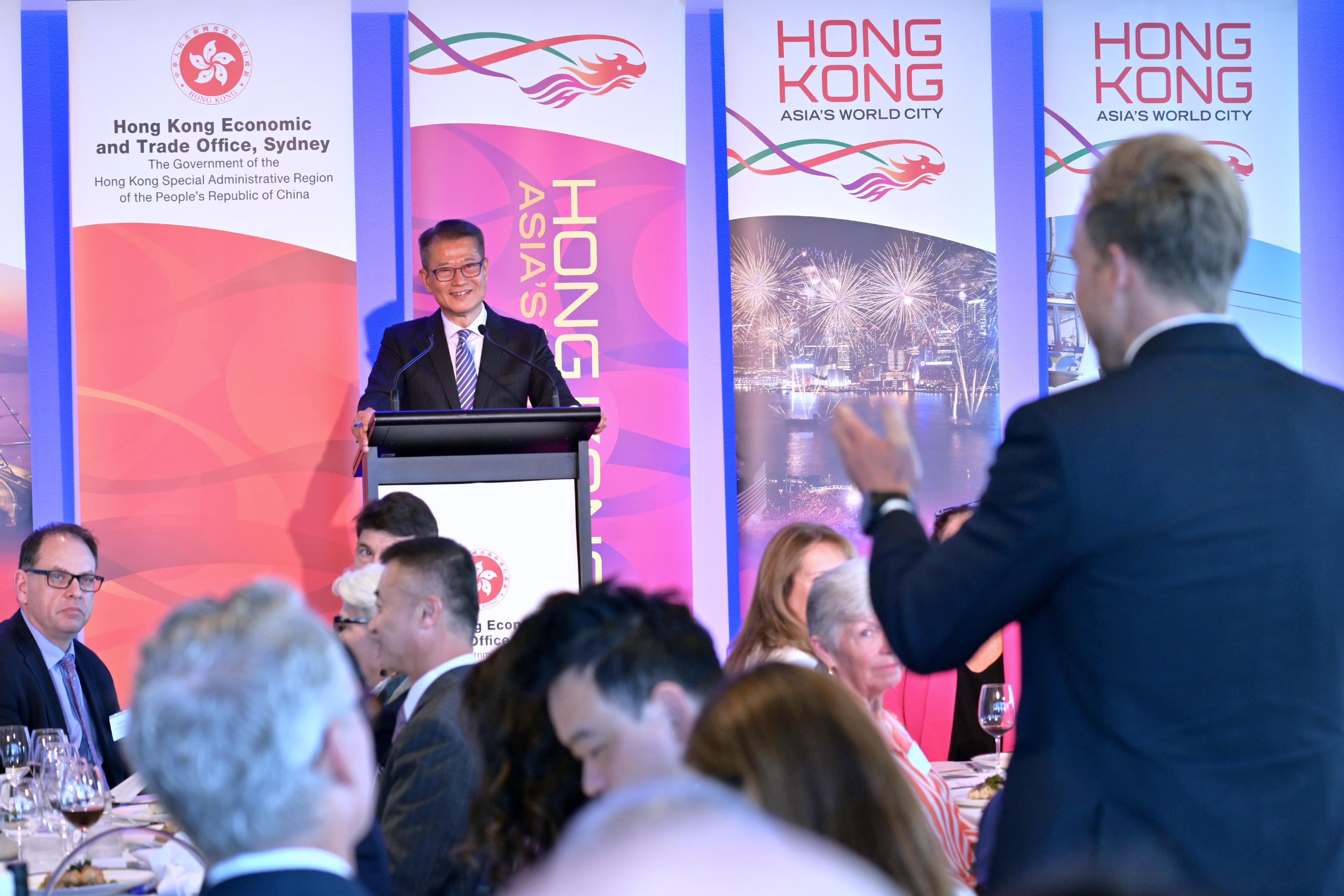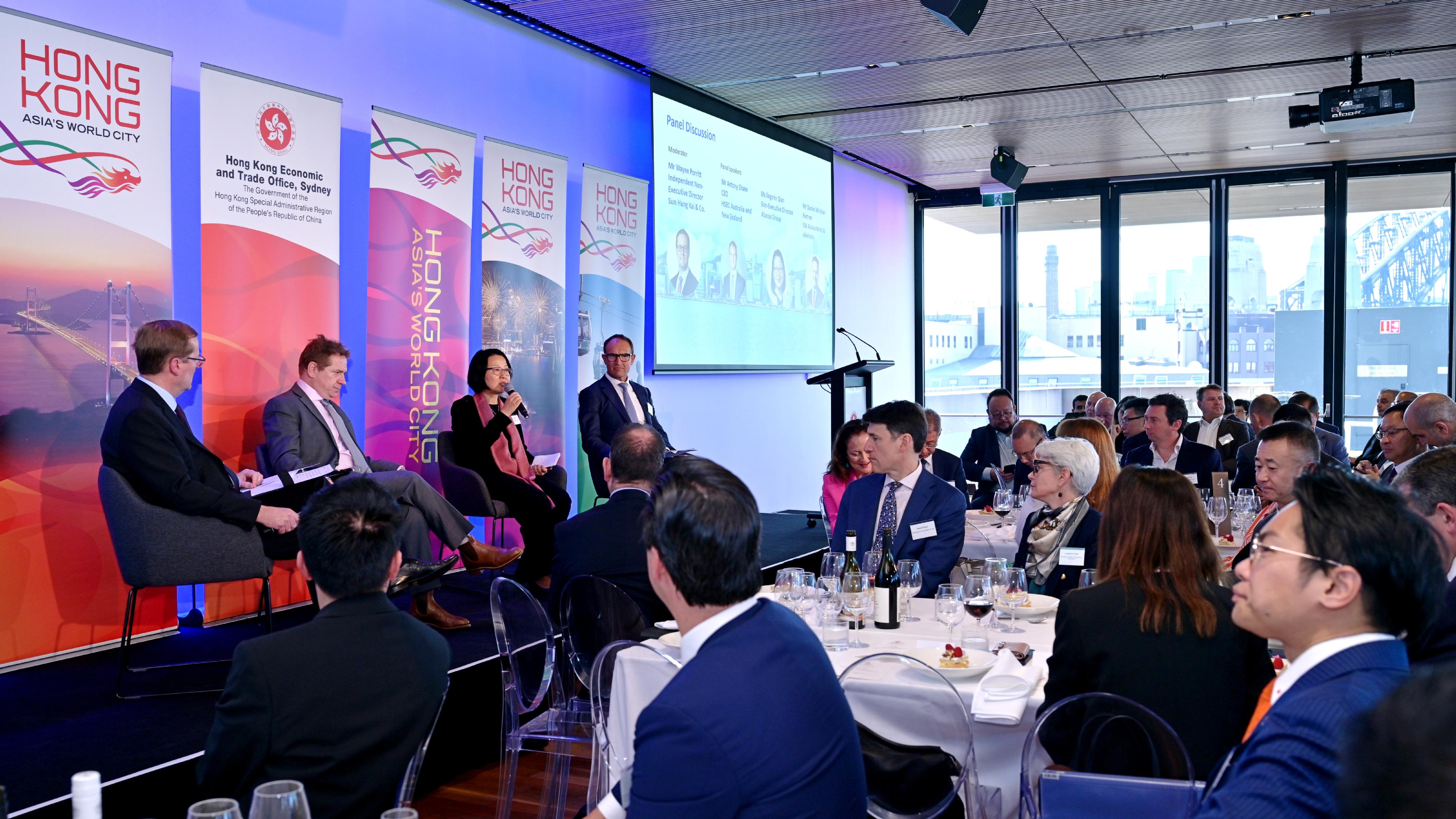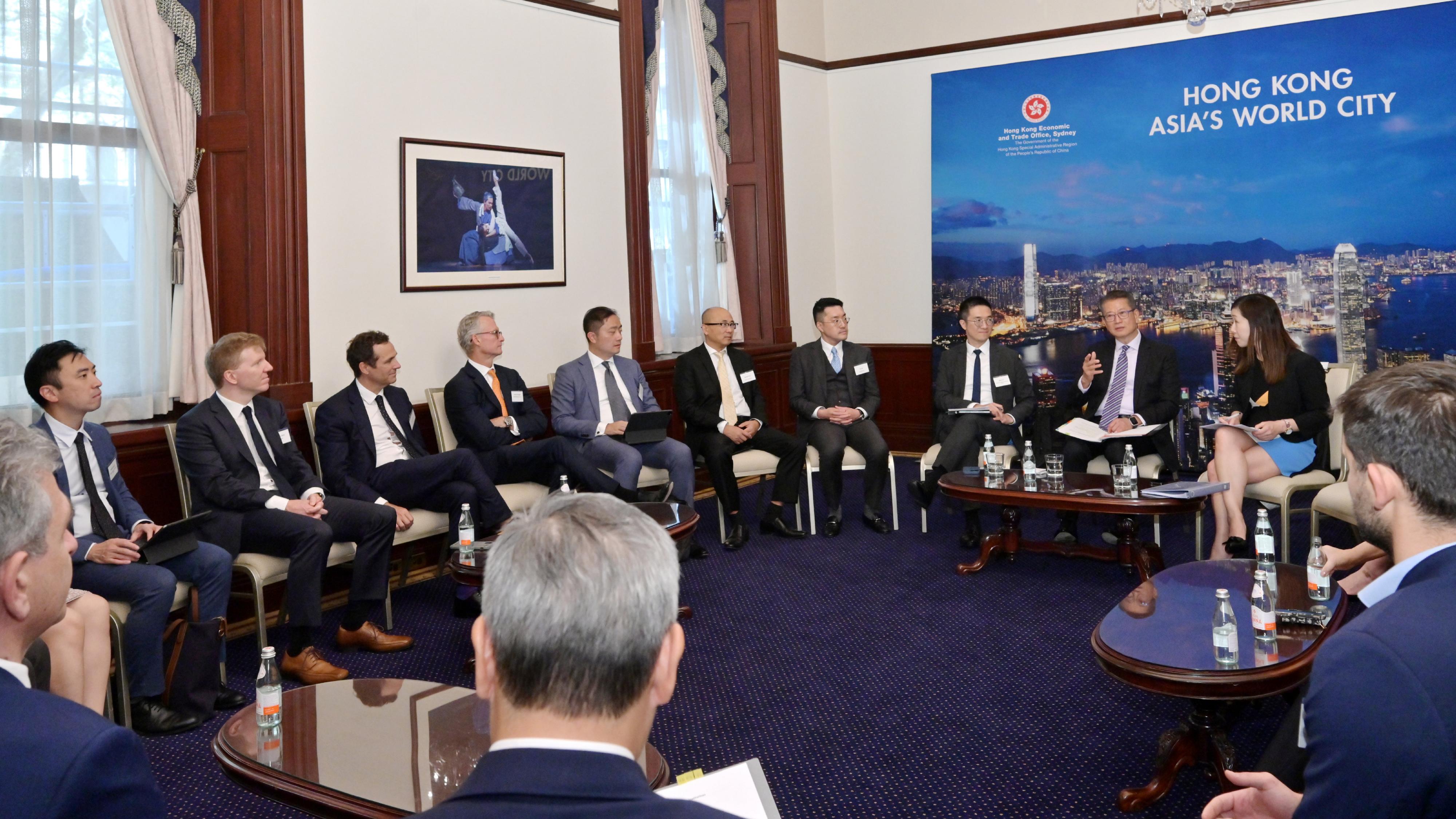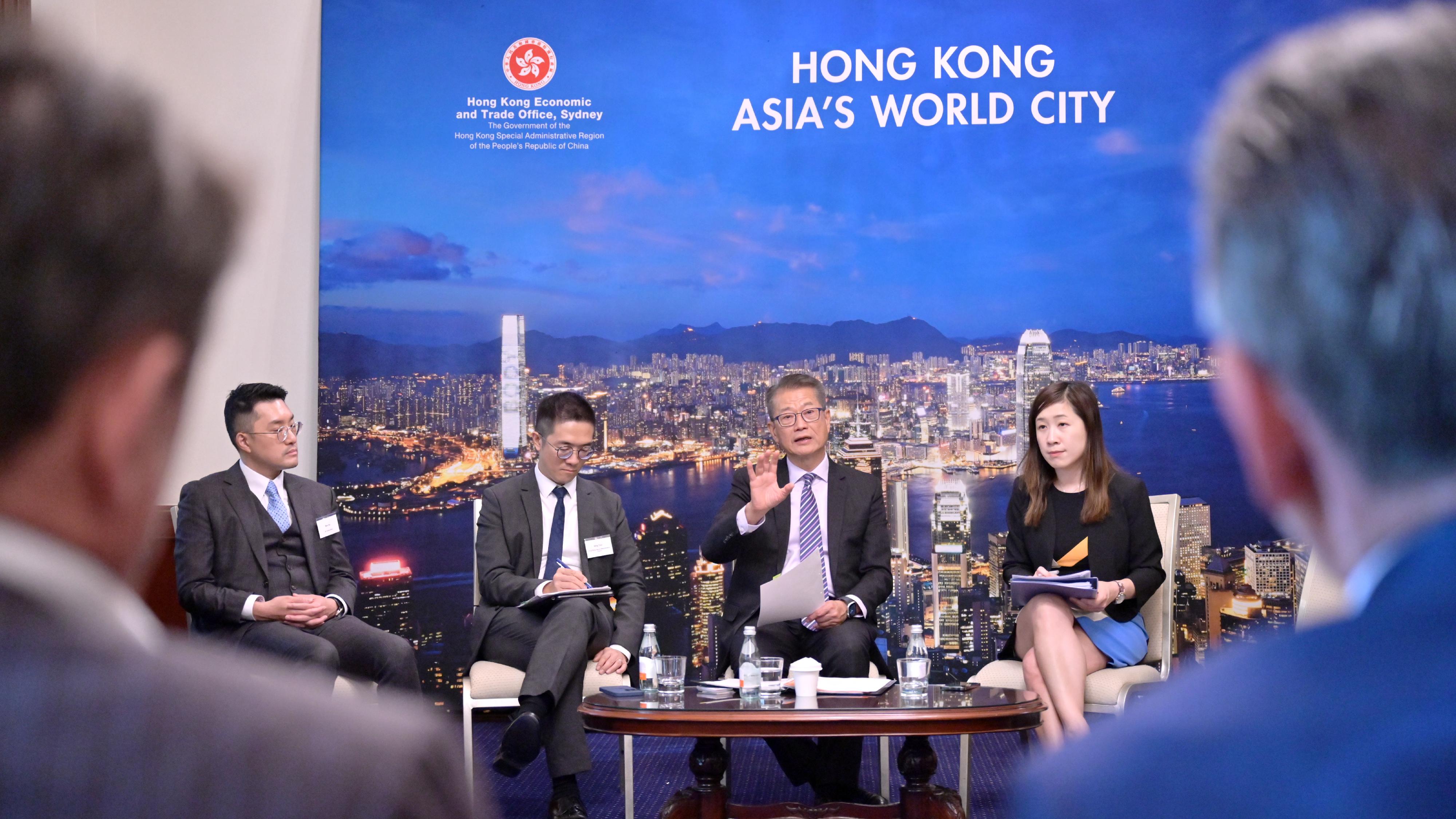FS concludes visit to Australia (with photos/video)
The Financial Secretary, Mr Paul Chan, concluded his visit to Sydney, Australia, today (September 5, Sydney time). He continued to promote Hong Kong’s business advantages to local business leaders.
In the morning, Mr Chan attended a roundtable breakfast meeting organised by HSBC, where he shared updates on Hong Kong’s latest economic situation and development directions with over 10 representatives from various sectors including the trade, financial services, green finance, fintech and professional services. They also exchanged views on promoting bilateral investments, trade and green and sustainable financial collaboration between Hong Kong and Australia.
At noon, Mr Chan attended a business luncheon organised by the Hong Kong Economic and Trade Office, Sydney to introduce Hong Kong’s development directions and policies in financial services and innovation and technology, as well as the development opportunities in the Guangdong-Hong Kong-Macao Greater Bay Area (GBA). The luncheon was attended by over 150 senior representatives from Australian industrial and commercial sector, financial institutions, investment institutions, enterprises and chambers of commerce.
Mr Chan detailed four unique advantages of Hong Kong’s financial sector and the opportunities it could create for Australian enterprises. First, he highlighted the financing market of Hong Kong, pointing out that Hong Kong has a deep and wide financing market, with continuous improvements made to the stock market. Over the past few years, new regimes were introduced to facilitate new economy companies and specialist technology companies to list on the stock market. Private equity and hedge funds in Hong Kong are substantial in scale, while mutual access programmes have been established between the financial markets of Hong Kong and the Mainland covering stocks, bonds, exchange-traded funds, and even derivatives. These have allowed Australian companies in Hong Kong to assess both Mainland and global capital at the same time while managing risks effectively.
Second, in respect of green and sustainable finance, Hong Kong is a green finance hub in Asia, accounting for one-third of Asia’s green bond issuances, and is the ideal place for for green and sustainable financing, with its green standards highly aligned with international benchmarks.
Third, Hong Kong serves as an important offshore Renminbi hub. The global use of the Renminbi as an exchange and reserve currency is growing. Hong Kong, as a global offshore Renminbi hub, has an RMB liquidity pool of over RMB1 trillion as well as diversified investment and risk management products that are continuously being enriched. These have enabled Australian companies to use their RMB for investment and risk management purposes more effectively.
Fourth, Hong Kong serves as an asset management centre. He pointed out that Hong Kong has robust asset management businesses, with assets under management amounting to over USD4 trillion, and over 2 700 single-family offices. World-leading asset management institutions are expanding their businesses in Hong Kong. With a growing demand for wealth management products projected from the 87 million people in the GBA, and the expansion of Cross-boundary Wealth Management Connect (WMC) in the GBA, the Australian asset and wealth management institutions could establish bases in Hong Kong and expand to the Mainland, as well as the broader Asia and beyond.
Mr Chan also introduced the developments of innovation and technology in Hong Kong, and initiatives and progress in attracting businesses and talent. He also encouraged Australian enterprises to establish their foothold in Hong Kong.
During the luncheon, a number of leaders from Australia's banking, accounting, consultancy and asset management industries shared their observations on the advantages of Hong Kong's financial market as well as its role as an asset and wealth management centre, their experiences in operating businesses in Hong Kong, and how Australian companies can leverage Hong Kong to open up a larger market.
In the afternoon, Mr Chan had a roundtable discussion with senior staff of over 10 financial institutions. They exchanged views on developing businesses in asset management, family offices, fintech, green finance and green technology in Hong Kong.
Mr Chan summed up his visit to Australia, "Through exchanges with the commercial and industrial sectors in Australia, this visit has promoted mutual understanding and bilateral co-operation for the future. We briefed them on Hong Kong’s current situation and key areas for future development, highlighting the opportunities in Hong Kong and the GBA and sharing positive stories from both places. Meanwhile, Australian companies in life and health technology, green energy, fintech, asset and wealth management, agricultural products, and wineries have commonly expressed interest in leveraging Hong Kong to expand further into Mainland and Asian markets. I hope that Hong Kong and Australia will deepen co-operation to create more opportunities for the trade, industry, finance, and innovation sectors in both regions."
Mr Chan departed for Hong Kong in the evening.
